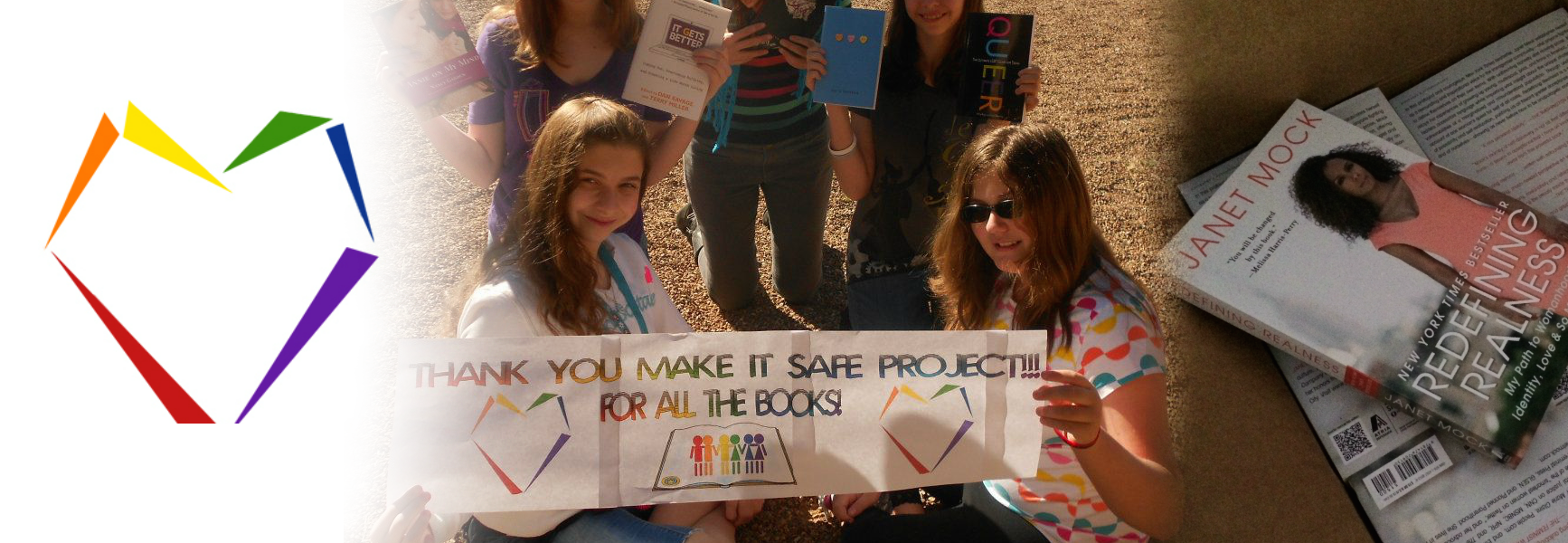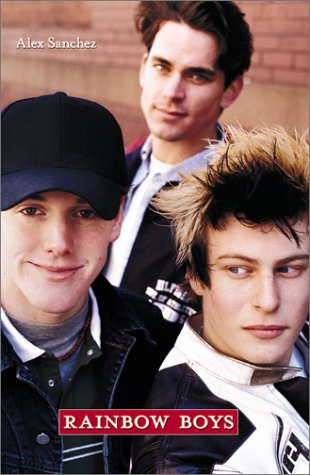Note: If you or someone you know needs help, you can call The Trevor Project‘s 24/7 confidential hotline: 1-866-488-7386
by Alex Sanchez, author of Rainbow Boys
When my first novel, Rainbow Boys, was about to be published my editor asked me, “Do you realize this book is going to save lives?”
I wondered if he’d confused my book with someone else’s. But then the novel came out, and I began to receive emails from readers. Some said the protagonists had become their role models. Others said they’d read the book over and over when they felt lonely and afraid. And then came responses like this one:
I’m proud to say that reading your books and others like them, as well as getting help and talking to people, I have gone from being mad at myself for who I was, cutting and hurting myself and being suicidal, to a happy, expressive, fun kid that I feel great to be.
My editor had been right. With each new book, I’ve been privileged to receive many more emails with messages like: I thought about suicide multiple times but could not go through with it. Your books gave me the inspiration to go on living and to never give up.
Or this one: I was going through a very rough part in my life… suffering from depression, on the verge of suicide, and then I read your books and was moved. … I don’t want to sound corny and say that you saved my life, but I can say you played a role in it. I am so happy with my life today, which is something I never thought I’d be able to say. Thank you, again
It can be a little overwhelming to read such heartfelt messages. I never imagined that my stories could have such impact. No wonder some people have banned my books from schools and libraries while others fight to put them—and keep them—on their shelves.
And yet in spite of more and more books about LGBT teens, the pressure to self-destruct remains too overpowering for some young people. Their stories can be heartbreaking. Stories like Randy’s.
In 2003, I drove back and forth across America, writing my road novel about three gay and bisexual teenage boys, Rainbow Road. As I traveled I typed up a first draft on my laptop and got excruciating carpal tunnel syndrome. After I finished my trip I settled in Miami. I couldn’t type anymore, and a second draft was due to my publisher. So, I prayed, “God, I need your help. If you want this book published, please help me find a way.”
Miraculously, the next day I opened my inbox and found an email from a 15 year-old boy named Randy:
Hey, I want to tell u that your books are awesome…… can u believe I read Rainbow Boys in one morning? I can’t wait to read the third Rainbow Book!!!…. Now, I want to ask you 2 favors. First, I really want u to come to Miami to sign my books… second, I want u to come visit my school where there are a lot of homophobics. In my first year, I was called lots of names and constantly humiliated. And now that my second year is coming, I don’t want to experience the same things I will really really really appreciate that u answer me. Like soon
I remembered my prayer from the previous day and thought: Hmm… So I wrote back:
Hi Randy, Thanks for your email. I’m actually in Miami, writing the third RAINBOW book, and I need someone to type it. Do you have a computer? Can you type well? Would you like a summer job? Also, I need to know if you’re out to your parents because I’d need to have their permission. Thanks!
To which Randy wrote back: Dude, what’s up? Yes, I can type well, and fast, and me and my mom can really really really use some extra money, but I’m not out to her yet. It’s hard to tell her, not because of how she is going to react, but because of my father. He is way too “machista.” So why is it an issue if I’m out to my mom or not? I will love to do the work, but I’m just going to type a book (actually not just a book, but the third part of the bestest books I ever read!).
To which I replied: My concern about your being out to your parents is this: Your mom might start asking you questions about the book you’re typing. I don’t want you to do something that will cause you problems with your family. Please think carefully about it.
Later that day I got this response: Dude, guess what? I just came out to my mom!.. It was so hard, but she handled it sooo well. God I still can’t believe it!!!!. SO? When am I going to start typing? Well, actually, I’m sort of busy right now (so many people are asking me too many questions about me coming out to my mom!!!), so later!
Randy and I began to meet at the public library. I would give him my handwritten pages that he would type up and email to me. In the process I got to know him. He told me about his crushes on other teen boys. He showed me his favorite music videos and brought me photos of his little brother who he loved. He revealed he was bulimic and would often make himself throw up so he could stay thin. He also said his dad hadn’t taken his coming out well. He’d told Randy he no longer wanted him as his son. I listened to Randy and tried to be encouraging.
After he finished typing my manuscript, we kept in touch. Over the next few years, he sometimes emailed me and I sent him copies of each new book. And then I received an email:
Hi Alex, I don’t know if you remember Randy. He’s the boy who typed a book for you. I don’t remember which one. I was his boyfriend when he typed your book. Sadly, I found out a few days ago that he committed suicide.
I was devastated. Now, years later my heart still clenches at the memory. He was 19 when he committed suicide. I share his story with you to honor him and his life.
We never know for certain why someone commits suicide. But research shows that for many young people it can be due in part to judgment and rejection.
A few years ago the highly esteemed professional journal, Pediatrics, published a controlled, objective study that compared two sets of parents. In one group, parents had accepted or were neutral to their child being gay. In a second group, parents had rejected their child.
The study found that teens like Randy who experienced rejection from a parent were eight times more likely to attempt suicide compared with teens whose families may have felt uncomfortable with their gay child, but were neutral or only mildly disapproving.
Well-meaning parents had thought that by trying to change their child, they were helping. When they learned that they were actually putting their child at huge risk, they were shocked.
I’ve come to understand why young people seek role models in LGBT teen characters and how LGBT novels can serve as lifelines. Despite the rapid changes in our society’s acceptance of gay people, many youngsters continue to struggle with rejection and bullying because of their sexual orientation.
Books can help, and you can help get those books into the hands of young people. Through your contribution to the Make it Safe Project, you too can save lives.
To learn more about Alex and his books, visit www.AlexSanchez.com or sign up here for his occasional email updates.


